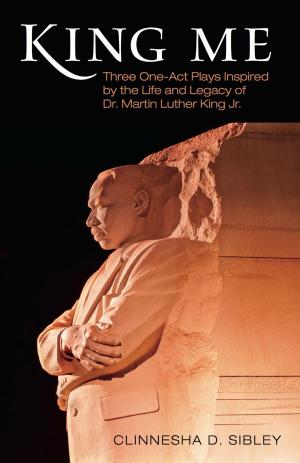I Do Wish This Cruel War Was Over
First Person Accounts of Civil War Arkansas from the Arkansas Historical Quarterly
Nonfiction, History, Americas, United States, Civil War Period (1850-1877)| Author: | ISBN: | 9781610755405 | |
| Publisher: | The University of Arkansas Press | Publication: | March 1, 2014 |
| Imprint: | The University of Arkansas Press | Language: | English |
| Author: | |
| ISBN: | 9781610755405 |
| Publisher: | The University of Arkansas Press |
| Publication: | March 1, 2014 |
| Imprint: | The University of Arkansas Press |
| Language: | English |
I Do Wish this Cruel War Was Over collects diaries, letters, and memoirs excerpted from their original publication in the Arkansas Historical Quarterly to offer a first-hand, ground-level view of the war’s horrors, its mundane hardships, its pitched battles and languid stretches, even its moments of frivolity. Readers will find varying degrees of commitment and different motivations among soldiers on both sides, along with the perspective of civilians living both in the thick of conflict and at a painful distance from fighting kin. In many cases, these documents address aspects of the war that would become objects of scholarly and popular fascination only years after their initial appearance: the guerrilla conflict that became the “real war” west of the Mississippi; the “hard war” waged against civilians long before William Tecumseh Sherman set foot in Georgia; the work of women in maintaining households in the absence of men; and the complexities of emancipation, which saw African Americans winning freedom and sometimes losing it all over again. Altogether, these first-person accounts provide an immediacy and a visceral understanding of what it meant to survive the Civil War in Arkansas.
I Do Wish this Cruel War Was Over collects diaries, letters, and memoirs excerpted from their original publication in the Arkansas Historical Quarterly to offer a first-hand, ground-level view of the war’s horrors, its mundane hardships, its pitched battles and languid stretches, even its moments of frivolity. Readers will find varying degrees of commitment and different motivations among soldiers on both sides, along with the perspective of civilians living both in the thick of conflict and at a painful distance from fighting kin. In many cases, these documents address aspects of the war that would become objects of scholarly and popular fascination only years after their initial appearance: the guerrilla conflict that became the “real war” west of the Mississippi; the “hard war” waged against civilians long before William Tecumseh Sherman set foot in Georgia; the work of women in maintaining households in the absence of men; and the complexities of emancipation, which saw African Americans winning freedom and sometimes losing it all over again. Altogether, these first-person accounts provide an immediacy and a visceral understanding of what it meant to survive the Civil War in Arkansas.















